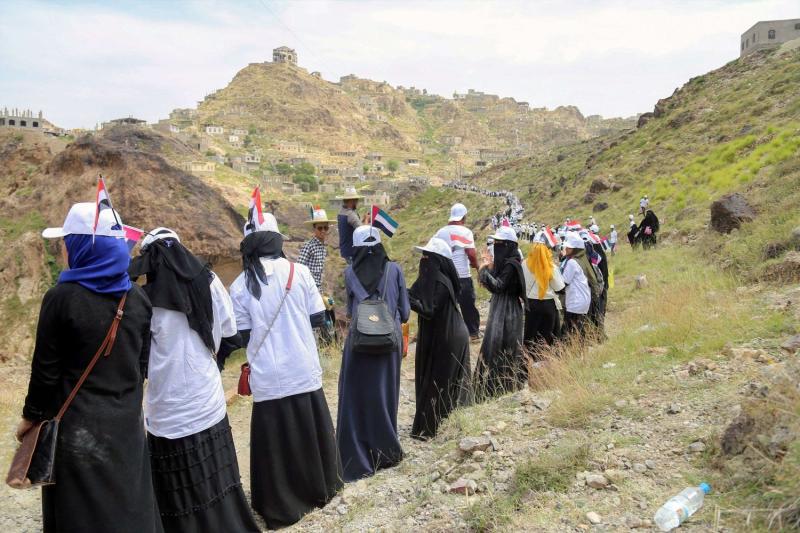Will a turn to diplomacy prove successful in Yemen?
Diplomacy is the cheapest, most effective way to solve disagreements and avoid conflicts, UAE Minister of State for Foreign Affairs Anwar Gargash said in a keynote speech at the inaugural Abu Dhabi Diplomacy Conference.
Organised by the Emirates Diplomatic Academy, the annual event brought together leaders in international politics, higher education and the private sector, shedding light on the Emirates’ foreign policy and providing a platform for knowledge sharing.
“Diplomacy is a very slow process but an important one,” Gargash said November 14 at the conference. “It is important because it works very well and it runs cheaper than open conflicts.”
Over the last two decades, the United Arab Emirates has used soft power to expand its footprint across the world. The dividends are there to see. The UAE is one of the world’s leaders in construction, smart cities, knowledge-based economy, digital banking and other sectors. The country has developed quality infrastructure, a vibrant economy and domestic peace and security, a stark contrast to the turmoil haunting much of the broader region.
Gargash said effective diplomacy was key to ensuring such successes and promoting stability and security.
“Many of the problems we have in our region are clear examples of failure of our diplomacy,” he said. “We don’t do enough to engage in diplomacy to resolve issues, take time to address each other’s perspectives and reach compromises.”
Nowhere has diplomatic failure been more costly than in Yemen, where political efforts to end the more than 3-year war have fallen short, largely due to Iranian involvement.
The scale of the disaster is staggering: A recent UN report stated that as many as 13 million Yemeni civilians — half the country’s population — will be at risk of starvation in the next three months.
Previous UN warnings drew criticism for levelling disproportionate criticism at the Saudi-led coalition relative to the Iran-backed Houthi rebels. It was, after all, the Houthis who provoked conflict by overrunning large areas of the country, deposing Yemen’s democratically elected president, Abd Rabbo Mansour Hadi, and capturing the country’s capital, Sana’a.
In 2015, the Saudi-led coalition was formed with international backing to reinstall Yemen’s internationally recognised government but hopes of a quick victory were soon dashed because the Houthis, aided with arms shipments and assistance from Iran, engaged in aggressive and destructive tactics.
Thousands of casualties later, the picture is dim. Whatever the outcome of the conflict in Yemen, there will be no clear-cut winners or losers.
What is important, though, is for the international community to find a way to stop the bloodshed and there are important efforts under way to secure a lasting political solution.
The UAE, which has with Saudi Arabia led a coalition of nine countries in the war, will be a key player in any political solution.
The Emirates’ military role in Yemen differs from its previous engagements, which largely focused on peacekeeping. The UAE has specifically taken the lead in southern Yemen, where its forces defended the strategic port city of Aden and liberated the eastern port city of Mukalla from al-Qaeda control. Also notable has been the UAE’s training of Yemeni forces.
However, in a region full of conflicts and shifting interests, the UAE’s pursuit of an active foreign policy does not necessarily mean it has grown more aggressive. Instead, the strategic shift could reflect the country’s goal of becoming an important regional actor with the capacity to fight terror, secure the global energy supply and confront Iran’s expansionist threat.
Indeed, the conflict in Yemen can only be understood when placed within the broader context of the Arabian Peninsula, where Iran is pursuing its expansionist agenda by propping up radical Shia militias, such as the Houthis.
While the UAE has often relied on soft power to address crises, Gargash said this approach has “failed” with Iran.
In Yemen, the Houthis, emboldened by support from their Iranian backers, have shown no interest in a peaceful resolution. They have abandoned or walked out of peace talks and shunned any opportunity to be part of a constructive future for the country.
As for Saudi Arabia, the UAE and their regional and international partners, there is a strong commitment to a political solution.
On November 15, the UAE, Saudi Arabia, the United States and the United Kingdom established a committee to address Yemen’s economic and humanitarian crisis. Convening in Riyadh, senior officials and ambassadors of the four countries committed to helping stabilise the country’s economy and called on the international community to support the peace process.
The Saudi-led coalition announced it was halting its offensive against Houthis in Hodeidah, increasing hopes of a lasting ceasefire.
The two major developments followed talks between Yemen’s Al Islah party and Abu Dhabi Crown Prince Sheikh Mohammed bin Zayed al-Nahyan, who stressed the Emirates’ desire to bring all sides of the conflict to the negotiating table to reach a political solution.
Will the Houthis seize this opportunity and join UN peace talks in Sweden by the year’s end? That remains to be seen.
Iman Zayat is the Managing Editor of The Arab Weekly.
This article was originally published in The Arab Weekly.







